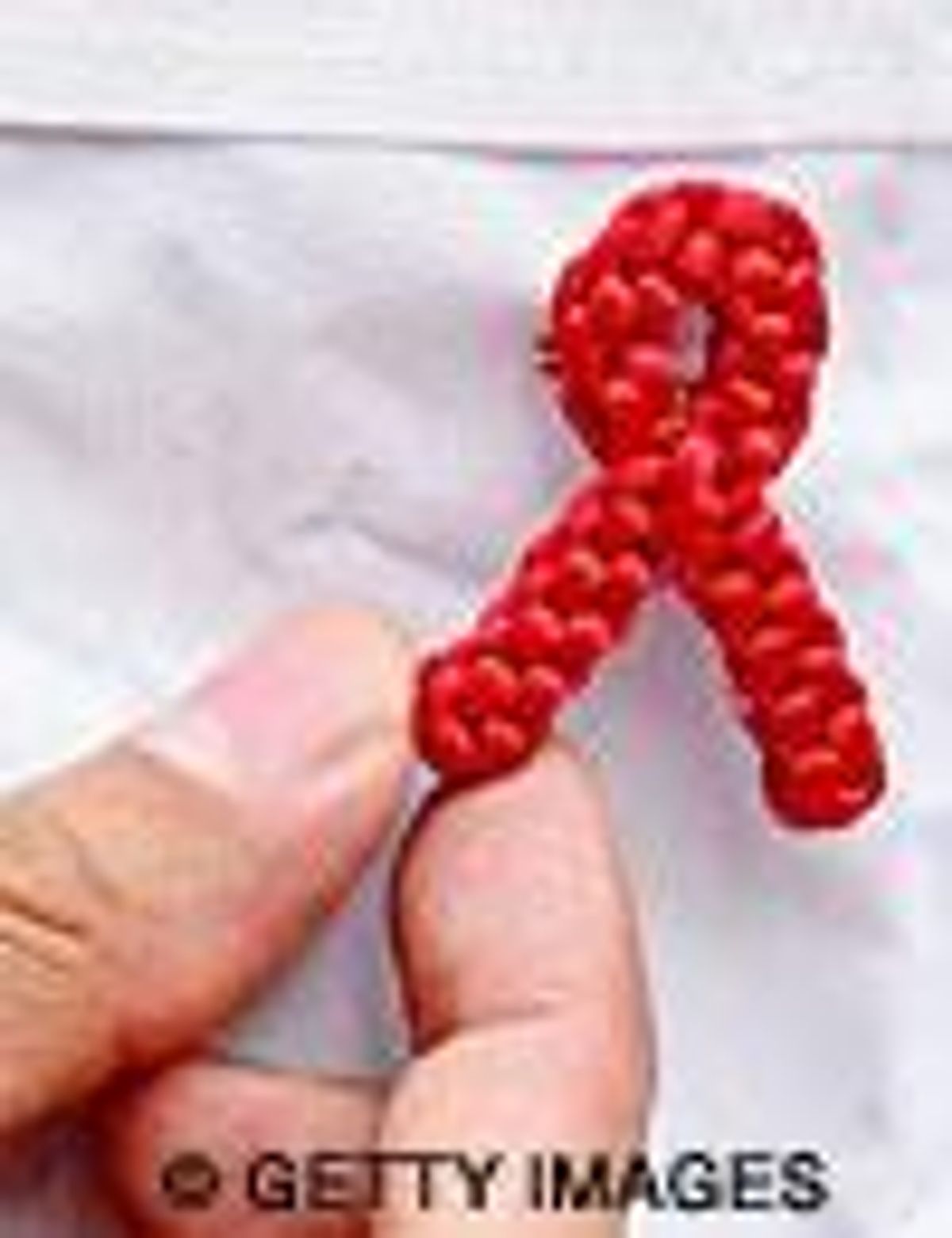Communities
around the planet marked World AIDS Day on Thursday with
candlelight vigils, workshops, protests, and speeches by
AIDS leaders, while in the United
States, President Bush both saluted the efforts
of gay men and lesbians in fighting the disease and lavished
praise on his administration for its successes in
fighting the disease in poor nations. In a speech,
Bush said gays have played a key role in slowing the
spread of the disease among Americans.
"HIV/AIDS
remains a special concern in the gay community, which has
effectively fought this disease for decades through
education and prevention," he said. Bush also called
for Congress to reauthorize the Ryan White Act, the
federal measure that funds HIV prevention, treatment,
care, and support programs across the country. The act
expired at the end of September; Congress is expected
to address its reauthorization next year.
But most of
Bush's speech was spent touting the
President's Emergency Plan for AIDS Relief,
which he says has helped 400,000 HIV-positive people
in sub-Saharan Africa get access to lifesaving
antiretroviral treatment, particularly those living in
Uganda, Kenya, Botswana, and Namibia. "These
countries, and many others, are fighting for the lives
of their citizens, and America is now their strongest
partner in that fight," he said.
However, Africa
Action, an AIDS activist group, marked World AIDS Day by
noting that the United States and other wealthy nations
haven't moved quickly enough or contributed
enough money to get anti-HIV drugs to the
millions of poor HIVers worldwide who need them. "In
Africa, where more than 25 million people are living
with HIV/AIDS, access to antiretroviral treatment is a
matter of life and death," said Salih Booker, Africa
Action's executive director. "But the prices charged
by pharmaceutical companies, and the policies pursued by
rich countries at their behest, continue to keep
lifesaving treatment out of reach for those most
affected by HIV/AIDS."
Even in the
United States, HIV treatment remains out of the financial
reach of many HIV-positive people, said the HIV Medicine
Association in a World AIDS Day press statement.
"It is important to acknowledge that thousands
of Americans with HIV/AIDS cannot afford good medical care
or lifesaving drugs," says HIVMA executive
director Daniel R. Kuritzkes. "Funding for the
safety net that has changed HIV/AIDS from a death
sentence to a treatable disease here in America has not kept
pace with the needs of the epidemic. There are clear
signs that safety net is fraying."
Kuritzkes points
out that among the most problematic domestic AIDS issues
are that Congress had flat-funded the Ryan White Act for the
past five years; that more than 2,000 people currently
are on waiting lists for AIDS Drug Assistance Programs
around the country; that Medicaid, the nation's
largest provider of HIV services, is slated for $11 billion
in federal funding cuts; and that the proposed budget
for the National Institutes of Health is inadequate to
keep pace with scientific developments in HIV
research.
In Africa, the
continent hit hardest by AIDS, most nations held official
events to commemorate World AIDS Day and to highlight the
increasing need for help from Western governments to
fund HIV prevention and treatment programs,
particularly in AIDS-ravaged sub-Saharan Africa, home to 26
million HIV-positive people. Nigeria's president
started his day with a morning jog with HIV patients
to help dispel the stigma associated with AIDS in the
country, while in Lesotho health officials launched the
world's first door-to-door national HIV antibody
testing campaign.
However, in
Swaziland, where nearly 40% of the nation's adults
are HIV-positive, King Mswati--often criticized
for not doing more to promote monogamy and condom use
in the nation--canceled all World AIDS Day events.
And in South Africa, home to more than 5 million
HIV-positive people, the most of any country in the
world, health minister Manto
Tshabalala-Msimang--called "Dr. No" by
AIDS activists because of her opposition to
antiretroviral drugs--repeated her support of eating
carrots, spinach, beetroot, and garlic as the preferred way
for HIV-positive people to fight their infections.
AIDS activists in
Buenos Aires covered a large obelisk in the center of
the city with a huge condom to highlight the effectiveness
of condoms in preventing sexually acquired HIV
infections. (Advocate.com)


















































































